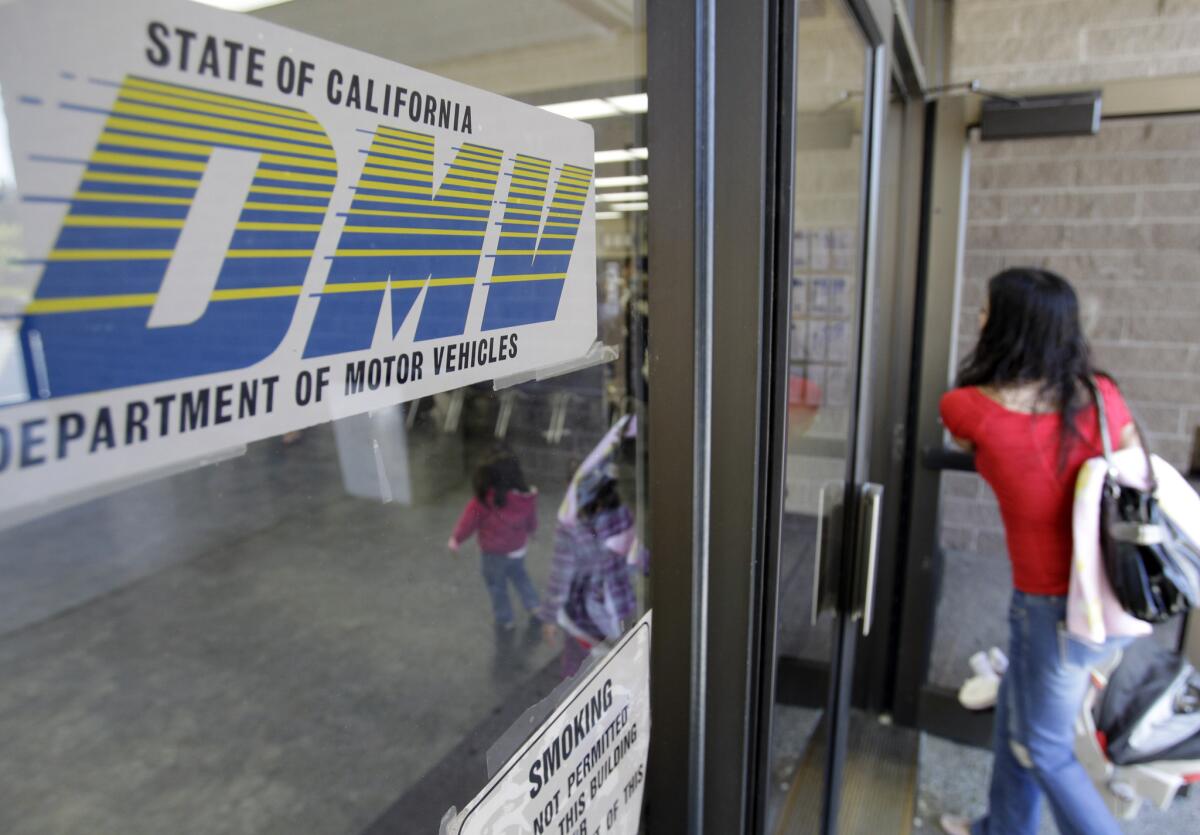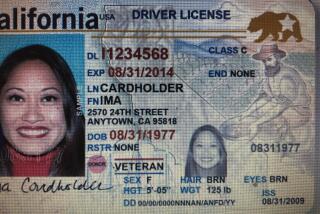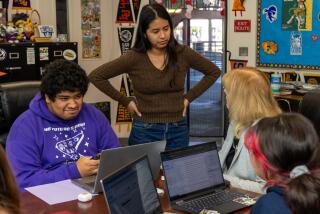Coronavirus outbreak could force Real ID deadline extension, California lawmaker says

SACRAMENTO — Already alarmed that California is falling short in issuing Real IDs to millions who need them, state lawmakers now worry the efforts will be further hampered by the coronavirus outbreak, which they believe will discourage people from visiting crowded DMV field offices.
The anxiety surfaced Wednesday as legislators heard the California Department of Motor Vehicles’ request for an additional $200 million to continue ramped-up efforts to issue the federally required IDs to the estimated 8 million residents who are expected to file an application this year. More than 10 million additional drivers in the state also don’t have a Real ID license but aren’t expected to immediately request one.
Assemblyman Phil Ting (D-San Francisco) predicted the outbreak, which the World Health Organization labeled a pandemic on Wednesday, will force the federal government to consider extending the Oct. 1 deadline for requiring that people show a Real ID to board domestic airline flights.
“I think they may have to,” said Ting, chairman of the Assembly Budget Committee. “You can’t tell people to stay home and then tell them to go someplace to pick up a license.”
The U.S Department of Homeland Security has not indicated that any deadline extension is in the works, and DMV Director Steve Gordon told state legislators that his agency has no plans to restrict access to field offices — even though many people are worried about the virus, which can be transmitted when people are in close contact.
Efficiencies adopted in recent months, including a program allowing people to upload required backup documents online before they visit the field office, help reduce the time customers spend at the counter, but Gordon did not indicate to lawmakers that his agency is asking the federal government for additional special allowances.
“People have expressed concern and we are following all of the health guidelines,” Gordon told lawmakers. He said his agency has not seen a decline in the number of people going to DMV offices, but added, “I suspect as this crisis evolves, people are going to change behavior.”
Gov. Gavin Newsom also raised the issue at a news briefing Tuesday on the coronavirus. With the outbreak disrupting government services across the country, Newsom said he hopes the federal government will take that into consideration and work with states to find a solution.
“We really encourage people to go online because you can still do a lot of work, automated work, to minimize the time you may need to be in a field office,” Newsom said.
“We’re not, at this moment, closing down any field offices,” the governor added, but indicated that position is subject to reevaluation as new facts emerge during the outbreak.
The DMV says it expects 16 million Californians will want to get a Real ID to meet new federal security requirements by the Oct. 1 deadline and about half of them have not yet done so. The agency has been issuing up to 450,000 Real IDs per month but would have to issue more than twice that amount monthly to meet the goal of getting the identifications in the hands of all 16 million.
The Legislature allocated an additional $240 million this year to hire nearly 2,000 additional staff to process Real IDs and reduce hours-long wait times at DMV offices, and Newsom’s budget proposes $200 million more in the fiscal year beginning July 1.
“Unfortunately, despite the Legislature providing the DMV with all of the funding it requested, it seems clear they will end up several million customers short of the goal,” state Sen. Jim Beall (D-San Jose), who heads the Senate Transportation Committee, said during a hearing Tuesday.
Ting said that Californians who don’t get a Real ID by Oct. 1 can still board planes by showing a U.S. passport or passport card.
The DMV has launched a $10-million advertising campaign to get more people to apply for Real ID and have streamlined the process, efforts Ting said are commendable.
“They really tried to get people in and just haven’t been successful,” Ting said Wednesday. “It doesn’t look likely that we are going to get to the 16 million number.”
With health experts saying the elderly and people with existing medical conditions are particularly susceptible to coronavirus, Beall urged Gordon to expand the number of Real ID services that can be accessed by vulnerable populations away from crowded field offices.
The shortfalls in issuing Real IDs are also a serious concern of the travel industry, which estimates 78,000 people in the United States may be prevented from boarding commercial flights on the first day the identifications are required, potentially clogging checkpoints operated by the Transportation Security Administration.
That disruption is another reason why federal officials should weigh postponing the deadline for Real ID cards, said Frank Miller, executive director of Burbank-Glendale-Pasadena Airport Authority.
“Pushing back the Oct. 1 deadline and allowing TSA pre-check and Global Entry to satisfy the Real ID requirement should all be options for consideration,” Miller told legislators. “While the DMV moves forward as fast as possible, airports continue to message to passengers and to Congress in hopes of a miraculous save.”
Times staff writer Phil Willon contributed to this report.
More to Read
Sign up for Essential California
The most important California stories and recommendations in your inbox every morning.
You may occasionally receive promotional content from the Los Angeles Times.











